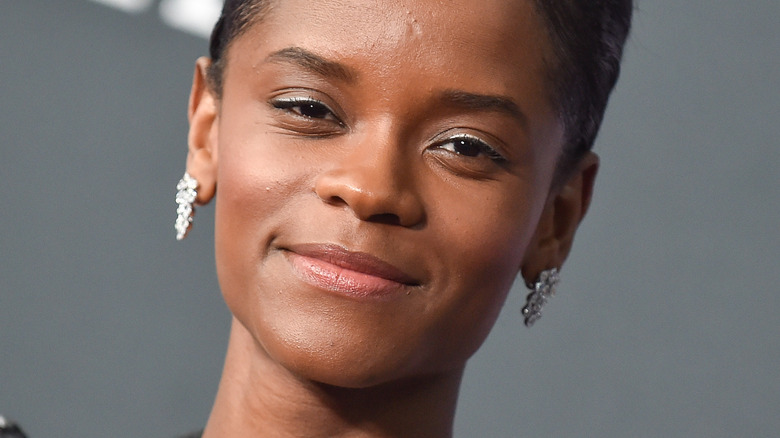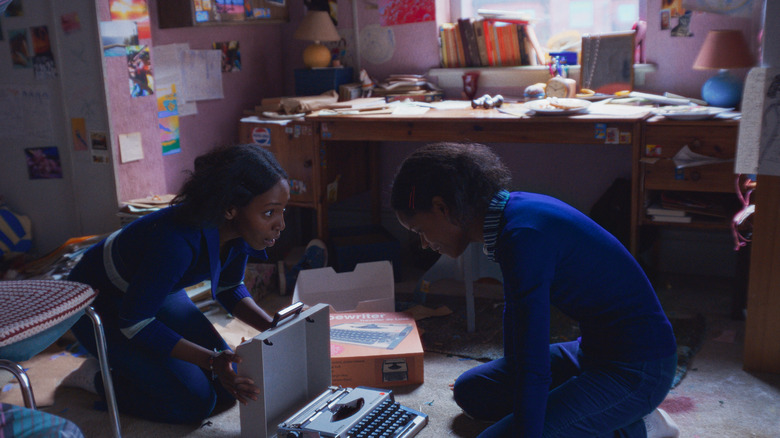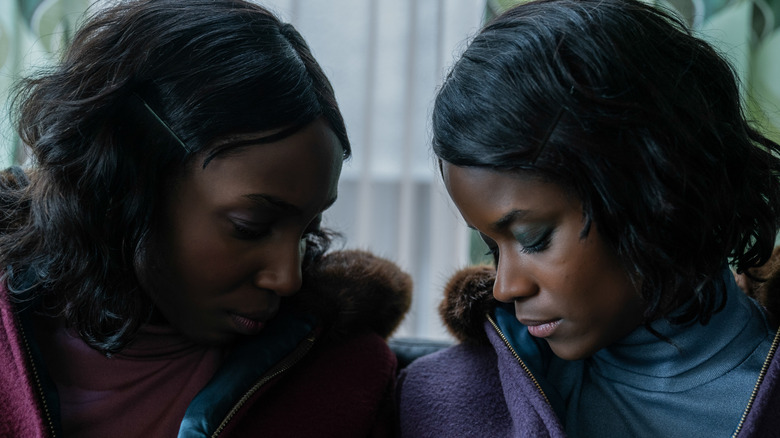Letitia Wright On The Importance Of Mental Health Representation In The Silent Twins - Exclusive
This article contains discussions of mental health issues.
For too long, mental health representation and the nuances of mental health care were rarely handled with care and accuracy onscreen — or at all. In addition to dumping people with mental illness into stereotypical boxes, films and TV have continually painted them as violent, which is far from the truth more often than not.
Leticia Wright's new film "The Silent Twins" tackles this subject in its own way, highlighting the perils of misdiagnosis and painting neurodivergent individuals as violent. The movie follows the real-life story of silenced Black Women June and Jennifer Gibbons. The twins ended up in a mental institution for 11 years due to their refusal to speak to anyone but each other and following a string of petty misdemeanor crimes.
Leticia Wright spoke to The List during an exclusive interview where she got candid about the mental health representation in "The Silent Twins" and how the twins are a cautionary tale when society tries to siphon individuality from people and put them into boxes.
If you or someone you know needs help with mental health, please contact the Crisis Text Line by texting HOME to 741741, call the National Alliance on Mental Illness helpline at 1-800-950-NAMI (6264), or visit the National Institute of Mental Health website.
Mental health representation
On the mental health care represented in the film, Wright said, "With our movie, we're not trying to cast any judgment on psychiatric hospitals or mental health institutions. That's not our aim. Our aim is to look at the society in which June and Jennifer grew up that failed them."
The aim for institutionalization should be rehabilitation and not punishment, but that's not how it always plays out. "I feel that they were put with individuals who weren't healthy mentally and [who] did crimes that are really, really problematic," Wright added. "When we explored this story, we [saw] how, in a way, innocent their crimes were, how childish their crimes were: stealing pencils and papers and sweets. On top of the other things that took place, that all came together to put them away."
Educating society
Expecting everyone to act and learn the same way can be incredibly damaging, as Wright noted. "Our film looks at the consequences and the problems of putting everybody in one box and not fully trying to understand the individual and what they're going through," Wright continued. "So our film is not a dig at any mental institution. Our film is looking specifically at what [was] done to the twins. Unfortunately, they became a part of [an] environment that they should have never been a part of in the first place, and we see how that plays out in their life and causes their mental health to go down instead of [healing] them."
Hollywood is finally giving a voice to communities who were, for too long, voiceless. On why we need more stories like this, Wright said, "It's important to tell stories like the one that we're doing with 'Silent Twins' so that people who have gone through situations like this can feel seen, and also, we educate each other as a society. The more meaningful the story, the more impactful the story [and] the more [we] as a society can grow and learn."
"The Silent Twins" is now playing in theaters.


